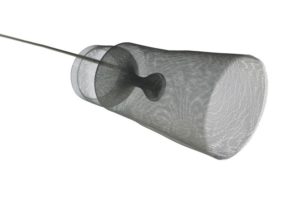
Emboline has completed enrolment in its SAFEPASS 2 clinical study of the Emboliner embolic protection catheter. A press release from the company, which develops total embolic protection technology for transcatheter aortic valve implantation (TAVI), also indicates that early results from the first 24 patients show an excellent safety profile and technical performance.
SafePass 2 is a prospective, non-randomised, multicentre, open-label study at three centers in New Zealand to assess the safety and technical performance of the second-generation Emboliner device. Thirty-day results from the first 24 patients were presented at Transcatheter Cardiovascular Therapeutics conference (TCT 2019; 24–28 September, San Francisco, USA). They showed no device-related adverse events, no device-related access site complications, 100% technical performance, and debris capture and removal in 100% of patients.
The company says that final data analysis is now underway for the full study population, the results of which will be used to file for CE mark for the Emboliner later this year.
The study also examined the amount of debris collected from patients. An average of 250 particles of debris ≥150um in size was removed from each patient, with more than half of patients having debris ≥1mm in size, and one in four patients having debris ≥2mm in size. The press release states that the amount of debris removed was more than five times the amount seen in the SENTINEL trial of the Sentinel cerebral protection system.
Emboline chief executive officer Scott Russell says in the company statement: “The amount of debris captured and removed from TAVI patients using this device is several times greater than any first-generation cerebral protection device has shown to date. Results from this study demonstrate the potential for Emboliner to significantly improve upon first-generation cerebral protection to protect both the brain and body, which is increasingly important as TAVI moves to younger and healthier patients. With these data, we will begin the processes of securing CE mark and seeking approval to begin our pivotal US clinical study.”
The statement also notes that debris generation during TAVI has been associated with a range of negative neurological outcomes for patients, ranging from a major stroke rate of approximately 6%, overall stroke rates as high as 22%, and new cerebral lesions in as many as 94% of patients. The Emboliner device is designed to provide total embolic protection of the brain and body during TAVI.










